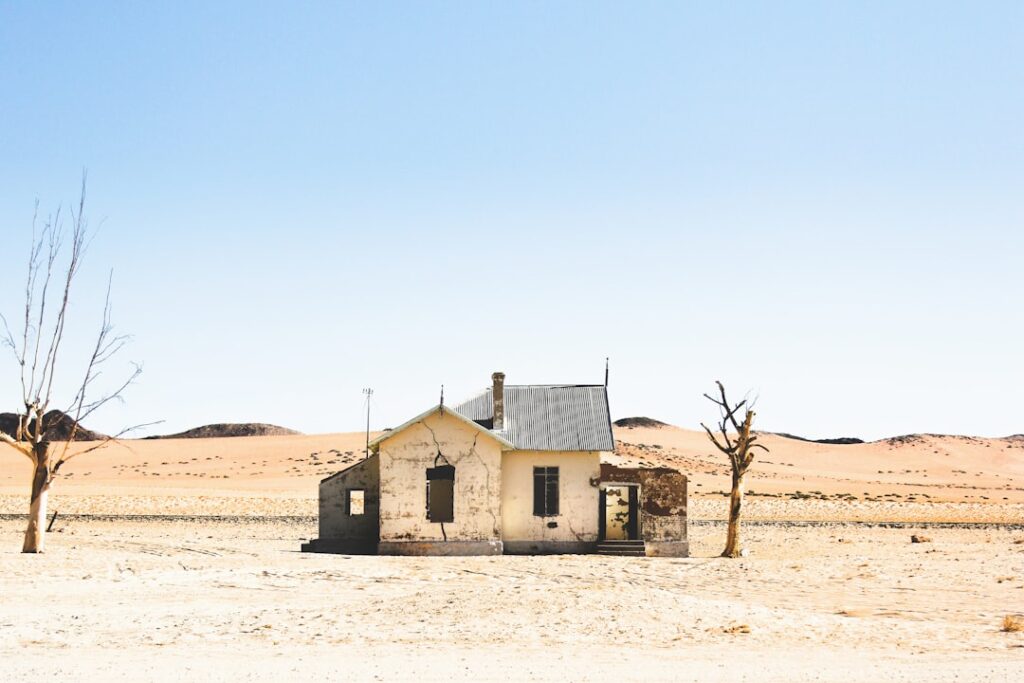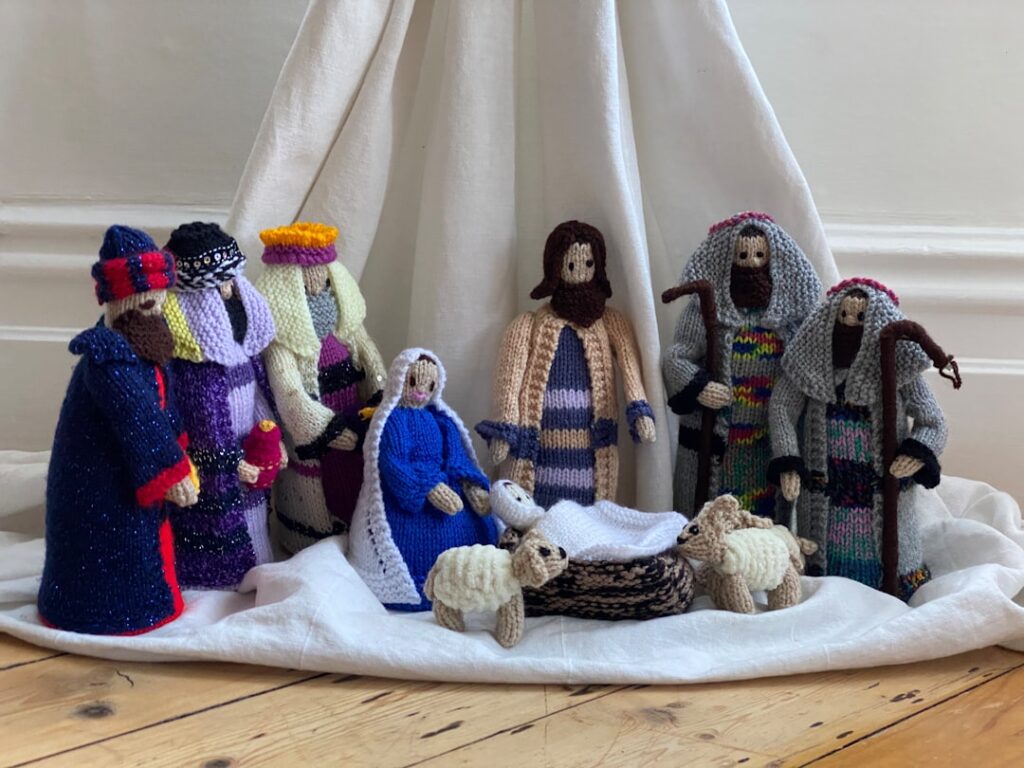
Matthew 8:23–27 is a big challenge—not just to me, but to you too, as you’ll see. This story isn’t just a story; it’s a mirror, a picture of what it means to live, to trust, and to follow Jesus in the real world—in life, because, to be honest, storms are everywhere; like real storms, they can appear suddenly and unannounced, in a heartbeat.
They’re varied storms: the doctor calls with news you didn’t expect, a relationship you thought would last forever shatters into pieces, or the money runs out, the work dries up, or the stress piles so high you can’t see your way forward. At that point, suddenly, you’re in the boat, the wind is howling, and the waves are crashing over the sides. And all you can think is, This is it. How will it stop? You’ve been there. I’ve been there. And so have the disciples.
Stepping into the story again—not as observers but as participants—let it speak, not just of their storm but ours too.
Jesus has just finished teaching. He’s healed the sick, cast out demons, and drawn crowds. Now, exhausted, He steps into the boat with His disciples to cross the Sea of Galilee. It should be a simple trip, perhaps a time to rest or reflect, but then, as in all great adventures, there comes the storm. The Sea of Galilee is notorious for this. Its geography—high hills surrounding a basin—makes it a perfect funnel for sudden, violent storms. This one is a monster: waves tower over the little fishing boat, the wind tears through their sails, and water pours in faster than they can bail it out. The nearest assistance is back on the shore, unaware of their plight. Who can help now? The heart sinks. The disciples—seasoned fishermen, experienced in these occupational hazards—are terrified. That’s how bad this is. They know the sea; they’ve handled storms. But this? This is different. They’re convinced they’re about to die.
And what is Jesus doing? Sleeping. Properly sleeping. Looking back today, two thousand years after the event, we might wonder—God was asleep in the boat! Did He dream? Avoiding our distractions—back to the boat. Can you feel the tension? They’re shouting, bailing, scrambling to hold on—and He’s curled up on a cushion, completely unfazed. So they wake Him, not gently. This isn’t a polite nudge but a desperate cry: “Save us, Lord; we are perishing!” Has the penny dropped as to who this is that sleeps through the storm? Has the facade of the carpenter from Galilee dropped, revealing His true divine identity? Brace yourself—you have just woken Jesus, and here comes the first rebuke.
“Why are you afraid, O you of little faith?” Wait. What? That’s His response? Not, “I’m so sorry you’re scared,” or, “Of course, I’ll fix this right away.” No. He goes straight to the heart of it. There’s a storm thrashing around them, and first things first: He rebukes their fear. Gosh, that stings, doesn’t it? It feels a little unfair. Fear seems like the most natural response in the world when you’re in a storm like that. But trust Him—Jesus isn’t being dismissive or harsh; He’s doing something deeper.
Fear and faith. They’re like two different worlds—two masters vying for control of your heart. Fear says, Look at the waves, at the wind. This is the end—give up. Faith, on the other hand, says, Look at Jesus. He’s here. That’s enough. The disciples are overwhelmed by what they see, but Jesus is asking them to trust in what they know. And what do they know? They’ve seen Him heal the sick, command demons to flee, raise the dead. They’ve heard His words, words unlike any they’ve ever heard before. Yet, in this moment, the storm feels more real than He does. You’ve felt this at times—What am I going to do?
Can we just pause here, because this is where the story becomes our story. How often do we do this? We know who Jesus is. We’ve experienced His faithfulness. But when the roaring storm comes, fear becomes the loudest, booming voice in the room. We’re distracted by the noise of the storm, the waves, the dark…
Jesus doesn’t say they have no faith—remember, they have, as a final resort, woken Him asking Him to do something about their predicament. It’s not that Jesus has woken up grumpy; it’s the truth in the storm. He says they have little faith. And isn’t that comforting in a way? Because it’s not about having perfect, raising-the-dead, unshakable faith. It’s about bringing whatever small measure of faith you have—even if it’s tiny, trembling, soaked to the bone—and putting it in Him. The point isn’t the size of your faith. It’s the size of your Saviour. In the storm, if He’s not going down and He’s with you, and you are with Him, then neither are you!
Then Jesus stands up. Oh dear. When Jesus has to stand up, someone is in trouble—or, as in Acts 7, the focus of His attention. Can you picture it? The wind is still howling like a pack of Siberian wolves. The waves are still crashing and overwhelming them, the disciples are clinging to the sides of the boat, soaked and shaking—and then He speaks. Just a few words. For a split second, we’re back in the book of Genesis: and God said…
And the storm stops. Just like that. The waves flatten. The wind dies. The sea is calm. The gentle ebb and flow of the sea returns, sloshing quietly against the side of the boat. Not just for them—the whole sea itself has now gone to sleep, no longer thrashing uncontrollably.
And the disciples? They’re not just relieved—they’re absolutely stunned. Jesus has just hit the ball straight out of the stadium. Matthew tells us they marvel, saying, “What sort of man is this, that even winds and sea obey him?” This isn’t the kind of awe that claps and cheers. Hardly. This is the kind of awe that leaves you speechless, breathless, undone. In that moment, they see it. Jesus isn’t just a good teacher. He’s not just a healer or a prophet. He’s the Lord of creation. The One who merely speaks, and the winds and waves bow in submission.
Isn’t it interesting? The disciples are more afraid of the calm than the chaos. The storm made sense to them; they’d seen storms before. But this? This kind of immeasurable, immense, omnipotent power? This is very new. And new is unsettling. Let it grip your heart—what Jesus is capable of for you, unexpectedly and unannounced.
If Jesus can calm the storm, if He can command creation with a word, what does that mean? What does that say about Him? About us? About the kind of life He’s calling us to live? In our Discipleship Bible Studies, we ask the questions, What does this tell us about God? and What does it tell us about people? Well, draw your own conclusions.
Sometimes it’s easier to trust God in the chaos than in the calm. The storm forces us to cry out, “Save us, Lord.” But the calm? The calm demands something even harder: open-hearted surrender. It asks us to recognise that Jesus is not just here to save us but to rule us, lead us, guide us, and protect us. To be not just Saviour but Lord.
This incident is more than just a miracle on a lake, in a far-off country, and in a time long ago. It’s a picture of the vibrant, grace-filled gospel. The storm isn’t just out there on the sea—it’s here, in us. It’s the storm of sin and death, the chaos of fear and doubt, and the deep, relentless waves that threaten to pull us under. Jesus doesn’t just rebuke the storm on the sea; He rebukes the storm in us, steps into the chaos, into our fear, into our brokenness, and He speaks peace.
But here’s the last thing to consider: the greatest storm Jesus calmed wasn’t with a word. It was with a cross. On Calvary, He faced the full fury of the storm—sin, death, hell itself. He let it crash over Him, let it take Him down, so that we could be lifted up. In our place—for us.
And now, because of the cross, every storm we face—every trial, every fear—has already been defeated. The One who calmed the sea has conquered the grave. What do we do with the Jesus who rebukes our fear and stills the storm? We let the rebuke to fear sink in. We name it for what it is: the storm-voice that tries to drown out faith. And we choose, again and again, to trust Jesus—not because the storm isn’t scary but because He’s bigger than the storm.
And then, taking a deep breath, we let the calm challenge us. We ask the hard question: What sort of God is this? And we answer it, not just with words but with our lives. Because if Jesus is who He says He is—if even the winds and waves obey Him—then He’s worthy of everything. Our trust. Our surrender. Our whole selves.
And here’s the promise: He’s with us, in the boat, in the storm, in the calm. Always. So, take another breath. Lift your eyes. The storm doesn’t get the last word. He does. And His word is peace.






